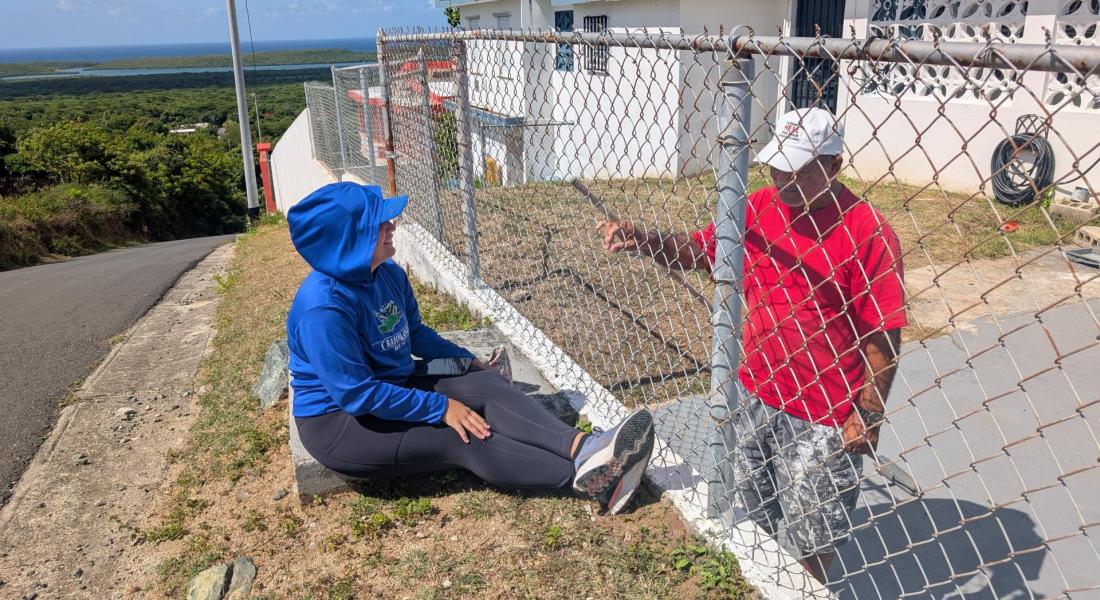
Kellogg Doctoral student affiliate Ben Francis (peace studies & political science) traveled to Vieques, Puerto Rico on a Kellogg Institute Graduate Research Grant to conduct research for his project “Achieving Aims: Understanding success and failure in the pursuit of environmental justice in Vieques, Puerto Rico..” Upon his return, he sent the following summary of his work.
I returned to Vieques in summer 2025 to follow up on the research project I had started data collection for at the beginning of this year. This project focusses on environmental justice and the legacy of a six decade long occupation of the island by the US military which ended in 2003 following a popular protest movement which gained international attention.
The main research activity undertaken on this trip was the fielding of a novel survey of island residents. This survey recorded responses relating to the ongoing remediation process of contaminated land in the former military base as well as ideas of justice, accountability and levels of trust in various political actors. Respondents were asked to share opinions and experiences relating to these issues. The results of the analysis of this survey data will provide a key part of the findings of my larger research project.
In order to administer this survey I was able to engage a wonderful team of three bilingual enumerators who helped to collect data from more than 350 Vieques residents across a two week period. Following a comprehensive training session with this research team, we methodically engaged residents in a systematic household level survey. During this process Vieques residents participated at very high response rates and shared responses to the survey questions as well as wealth of personal experiences and qualitative reflections relevant to the research topics.
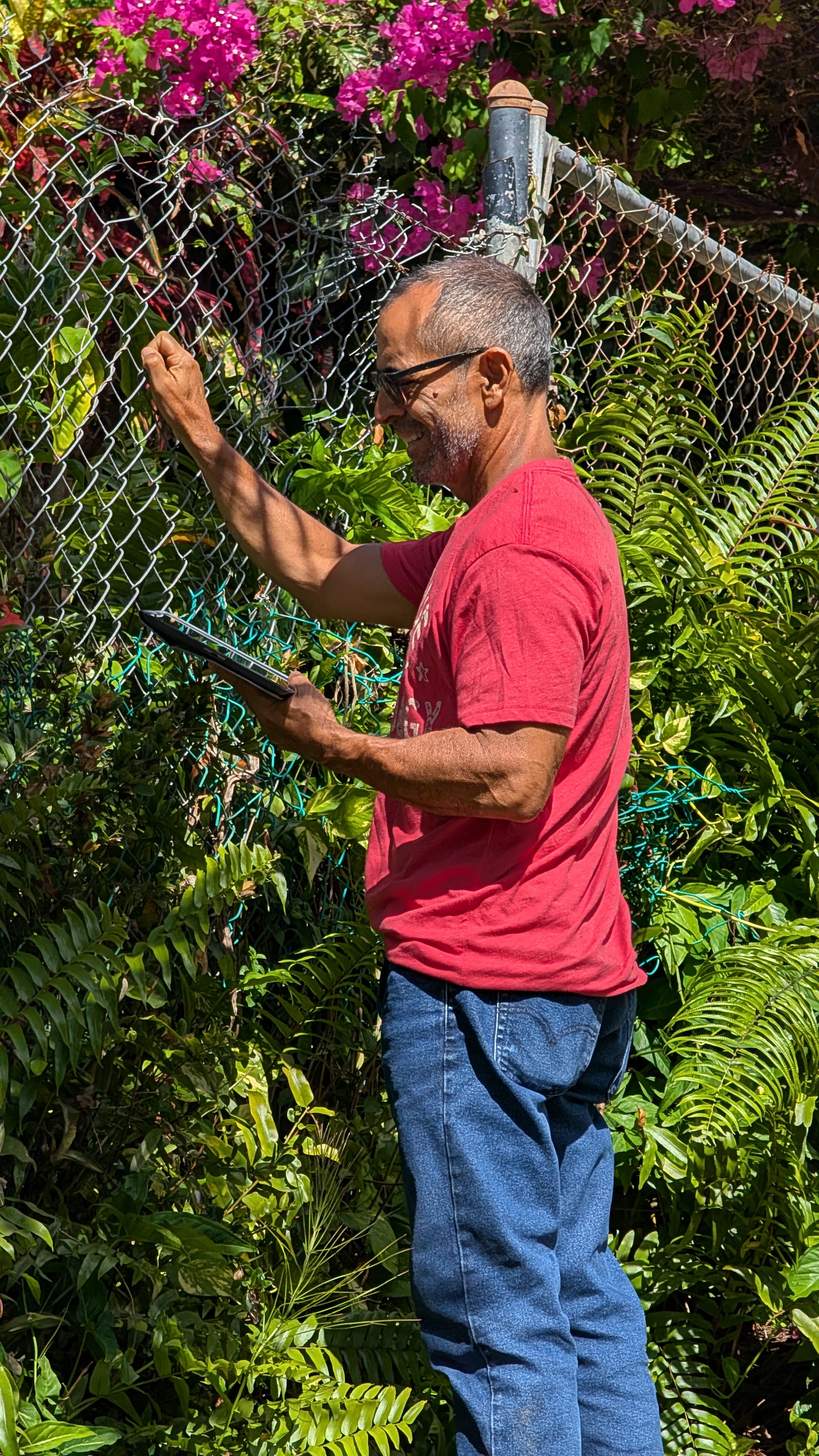
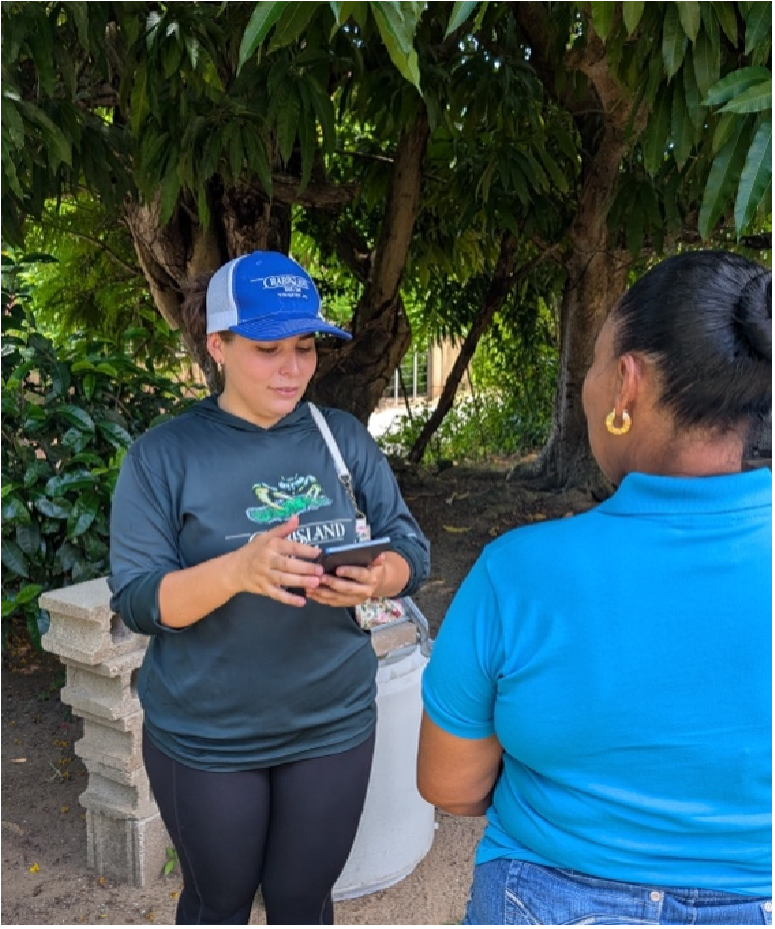
Data collection
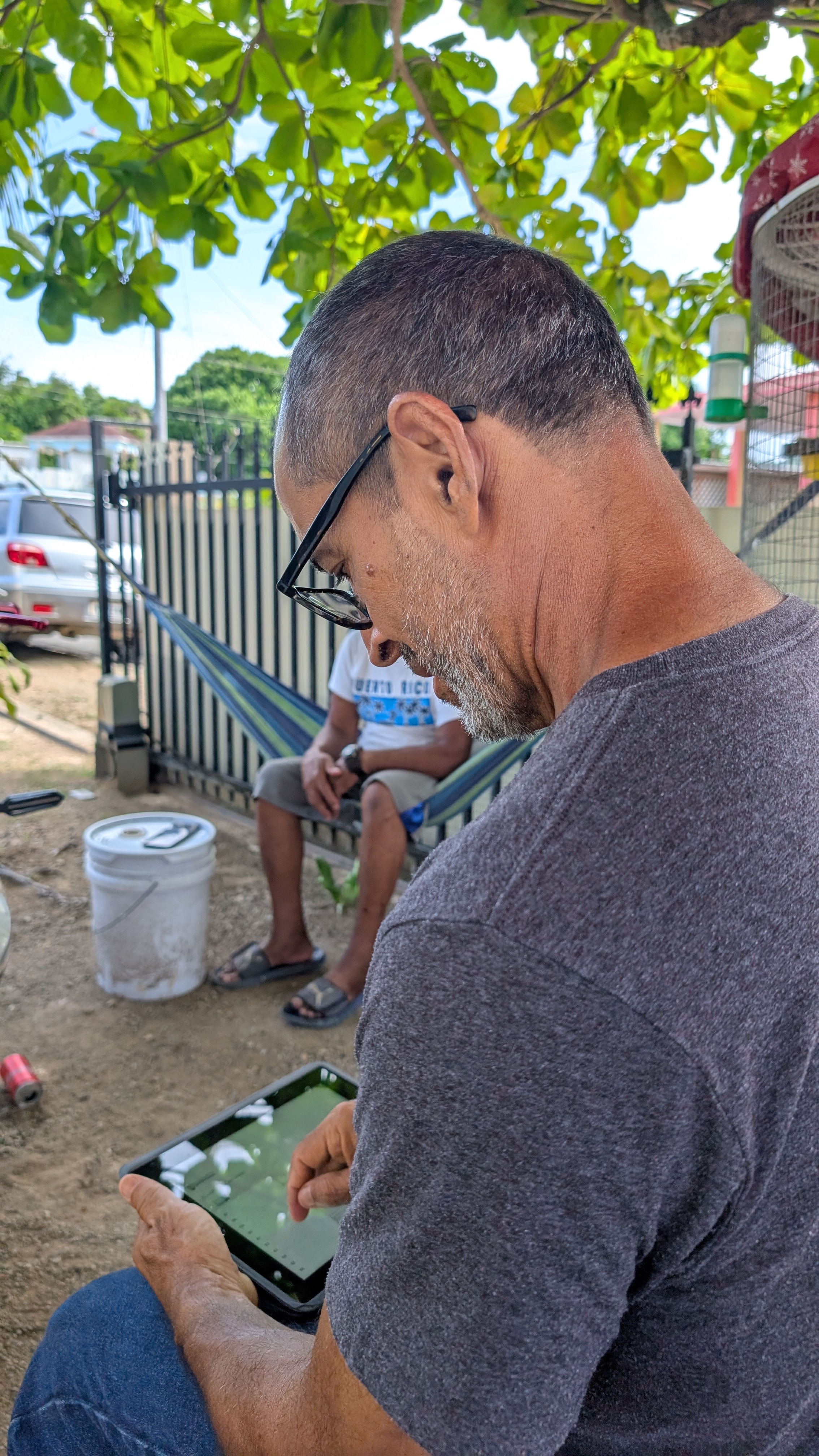
As part of this process we visited a wide range of neighbourhoods and residential areas on Vieques. With a population of just over 8000 permanent residents spread across areas of diNerent population density, we worked hard to create a survey response collection process that would allow for the inclusion of a diverse range of Viequenses voices.
In the aggregate, this collection will provide valuable data for this ongoing research project and oNer illuminating insights into the research questions exploring topics of legacies of violence and environmental remediation. More immediately, though, it will also provide a snapshot of public opinion in Vieques, including on a number of topical and relevant issues, creating an evidence base through which the complexities of resident’s perspectives can be represented.
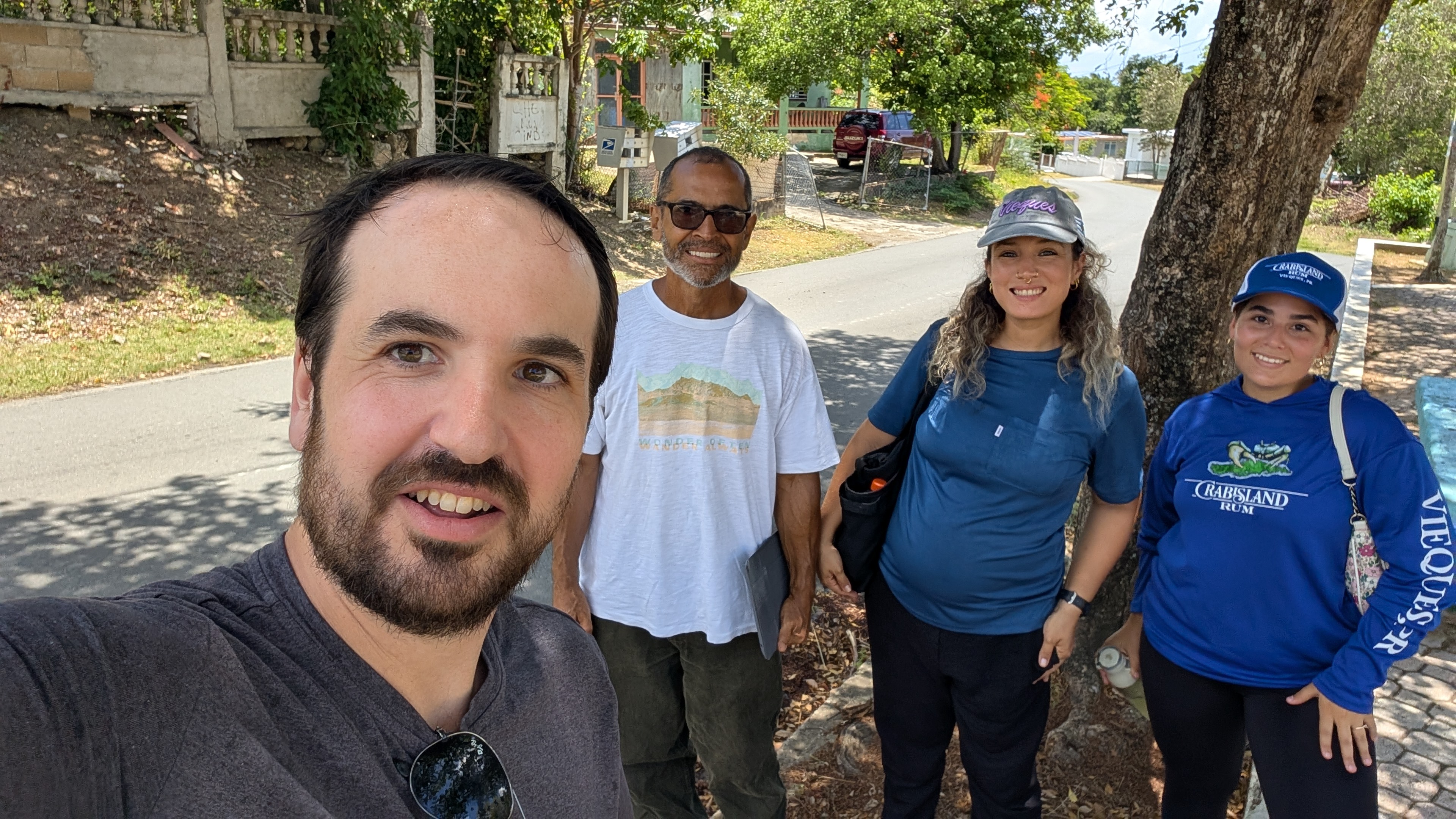 As well as the survey, I took the opportunity on the island to follow up with some contacts in order to conduct additional interviews to supplement the interview data I had collected on my previous trip. These interviews helped to add depth to some existing findings and to explore topics which had emerged through an iterative investigation process. Beyond this I also followed up with a number of contacts in Viequense civil society to both strengthen connections but also to volunteer my services, including access to preliminary findings from the survey data as it emerges, so as to act in a collaborative and ethical manner as a researcher in communication with practitioners.
As well as the survey, I took the opportunity on the island to follow up with some contacts in order to conduct additional interviews to supplement the interview data I had collected on my previous trip. These interviews helped to add depth to some existing findings and to explore topics which had emerged through an iterative investigation process. Beyond this I also followed up with a number of contacts in Viequense civil society to both strengthen connections but also to volunteer my services, including access to preliminary findings from the survey data as it emerges, so as to act in a collaborative and ethical manner as a researcher in communication with practitioners.





